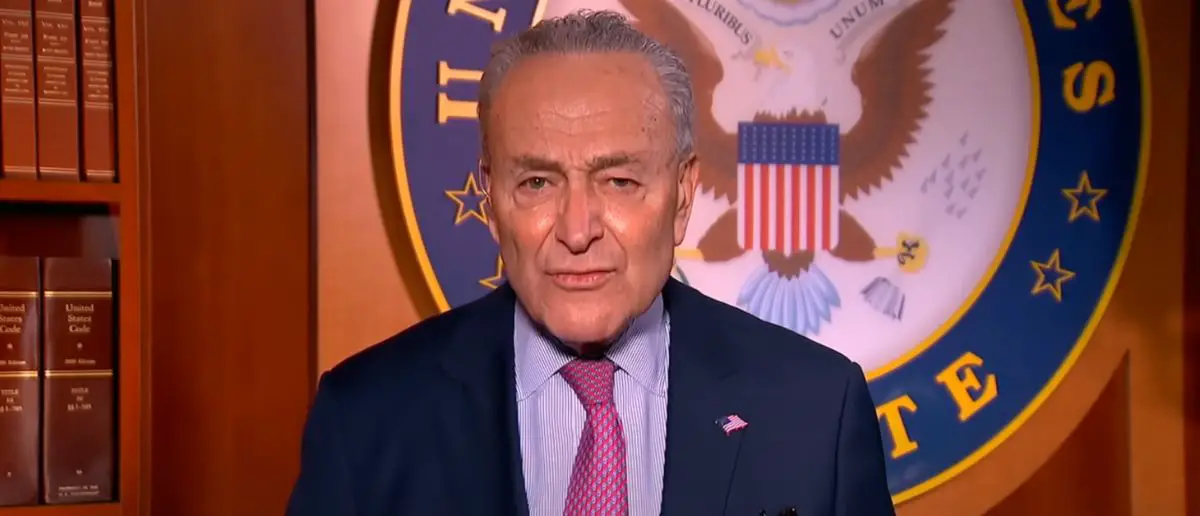
Democrat Rep. Nancy Pelosi is known for being quite the authoritarian. She doesn’t take criticism well at all.
That’s why Nancy Pelosi started foaming at the mouth when she heard what her colleague had to say about her.
Pelosi’s fall from grace has been quicker than anyone would’ve thought just a few short years ago.
For a while, she had cemented herself as the leader of the Democrats in the House as the Speaker of the House.
Essentially, nothing got passed through Congress by Democrats without her signing on board.
But after being unceremoniously kicked out of her position, now she wastes her days voting for whatever they tell her to vote for…usually.
Now she’s breaking with some of the most far Left in the party for the worst reason possible.
Liberal groups have slammed Democrats after party leaders voted to endorse a bill increasing the government’s primary surveillance ability without providing significant additional safeguards for Americans’ privacy.
In a powerful floor speech, Nancy Pelosi urged her party to give the FISA renewal to Mr. Biden while rejecting the warrant requirement, which she claimed would “undermine” American security. Civil liberties advocates said it was difficult to reconcile her current viewpoint with previous votes.
“I’m convinced that had Pelosi not taken to the House floor to advocate against a Fourth Amendment warrant requirement, the Biggs-Jayapal warrant requirement amendment would’ve passed easily,” Mr. Eddington, a staffer to former Rep. Rush Holt, a New Jersey Democrat, told The Washington Times.
“You’d have to ask Pelosi why she supported closing the 702 ‘back door loophole’ during Obama’s second term but has now opposed it with President Biden in office,” he said. “The facts about the 702 program now are far worse than they were back then.”
After the speech, Democrats provided the majority of the votes as the House renewed Section 702 of the Foreign Intelligence Surveillance Act and, in a separate vote, rejected an attempt to force the FBI to seek warrants before spying on Americans’ communications.
The votes were a dramatic reversal from six years ago, when Democrats led the opposition to FISA and Republicans were its primary backers. Civil liberties advocates wondered what had changed.
“Dems tank tie vote on key privacy protections,” blared the headline of Demand Progress, a liberal pressure group.
“This is a sharp betrayal of every American,” said Sean Vitka, the group’s policy director. “Americans will not forget this stab in the back by the House, in particular those members who have pretended for years to be aligned with civil liberties.”
The bill extends Section 702 authority for two years, allowing the government to intercept large amounts of communications from foreign targets abroad.
The law passed the House with a vote of 273-147, but the real drama began with an amendment to add a warrant requirement. That amendment failed on a tie vote of 212-212, with 126 Democrats and 86 Republicans opposing the warrant.
FISA opponents intend to compel a re-vote on Monday. They are hoping that public pressure or the return of members who were absent for Friday’s vote would change the outcome. If not, the legislation will be sent to the Senate for possible approval.
Intelligence officials have begged for Section 702 to be renewed. Otherwise, they claimed, they would be ignorant of significant terrorist risks and fail to notice other growing threats such as Chinese aggressiveness or fentanyl smuggling.
FISA has always crossed traditional partisan boundaries. The most conservative and liberal parliamentarians have found common ground in their distrust of the intelligence agency and concerns about fundamental constitutional liberties.
Historically, more Democrats than Republicans opposed FISA. In 2018, when FISA was up for renewal, 20% of Republicans and 65% of Democrats voted against it.
This year, the Republican opposition has doubled to more than 40%. Democrats’ opposition dropped to less than 30%, despite the fact that the measure permitted for surveillance on a broader range of foreign intelligence activity.
Stay tuned to the DC Daily Journal.





